The War on Clutter: 8 Ways to Edit Your Workspace and Life
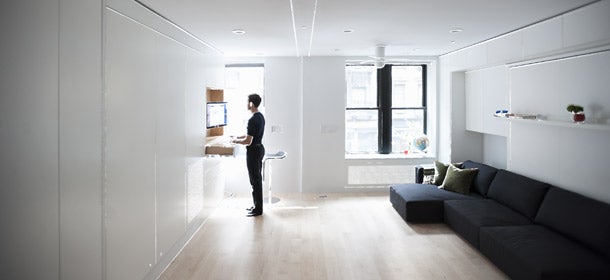
For the first time in history, owning less stuff is a sign of wealth. A recent article in T Magazine reports that the new rich are embracing “amor vacui,” the love of empty space.
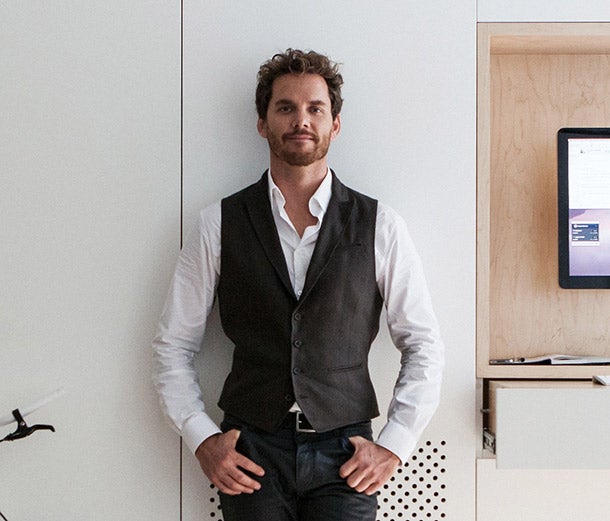
Graham Hill, Founder of LifeEdited
Image credit: Reid Rolls
Graham Hill, founder of design website LifeEdited, discovered the “luxury of less” long before the world’s affluent embarked on this trend. In 2007, he sold TreeHugger, the environmental website he founded. The windfall from that sale would lead the young tech millionaire to fill his mansion with all the electronics and possessions his heart desired.
He soon realized that his house – and psyche – began to feel a bit cluttered. “I realized I was in my late 30s, and still living like a student,” says Hill. “I just wanted to build my own cool, green apartment.” So he used his background in architecture and design to edit his life. He moved into a 420-square-foot New York City apartment and used this crowdfunded space to prove that people could have everything they need by living in a smaller, smarter and healthier space.
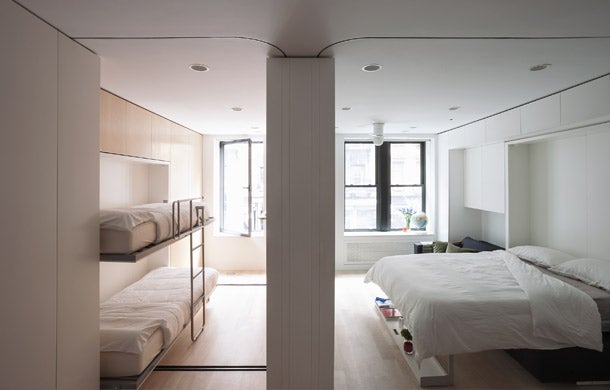
Inside a LifeEdited apartment
Image credit: Matthew Williams
The advantages? Less credit-card debt, less stress, les energy consumption. It led Hill to start LifeEdited, a design company that consults architects on building energy and space-efficient apartments, with multifunctional walls, multipurpose furniture and eco-friendly materials.
But American homes are getting bigger again. Recent data from the U.S. Census show that the average American house is 2,505 square feet, an all-time high since its drop during the recession. “You would think that with all that space, we have enough room for our stuff,” says Hill. “But the self-storage industry illustrates how over the top we’ve become.”
The U.S. self-storage industry generated more than $24 billion in revenues in 2013. Nearly half of all self-storage renters earn less than $50,000 per year.
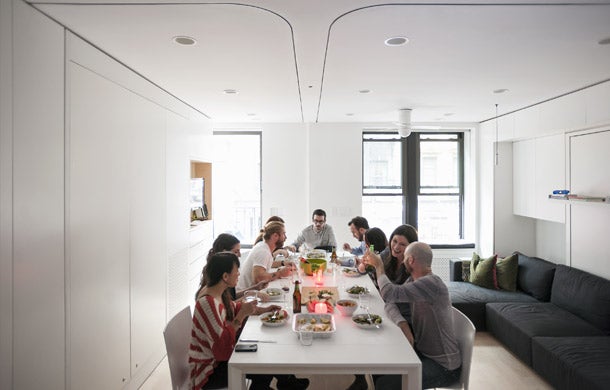
A dinner party for 12 is still an option
Image credit: Matthew Williams
To keep Americans from resorting to dreary and pricey storage facilities, LifeEdited.com showcases products, services and tips that promote an uncluttered lifestyle – an art that perhaps many startup workers must master. Many entrepreneurs work in smaller offices and/or shared incubator space. Their savings are usually tied up in their own company and their employees often live on smaller salaries.
From organizing office space to sharpening management skills, here are LifeEdited’s tips to ruthlessly de-cluttering your startup’s operations.
1. Shop discriminately. This involves developing the LifeEdited philosophy. Just because something is a bargain doesn’t mean it deserves your money, or a place in your life. Clotheshorses and techies with a penchant for the newest editions of every gadget must ask themselves: “Will this purchase truly make me happy? Will I use this for years?” The same goes for office supplies and furniture.
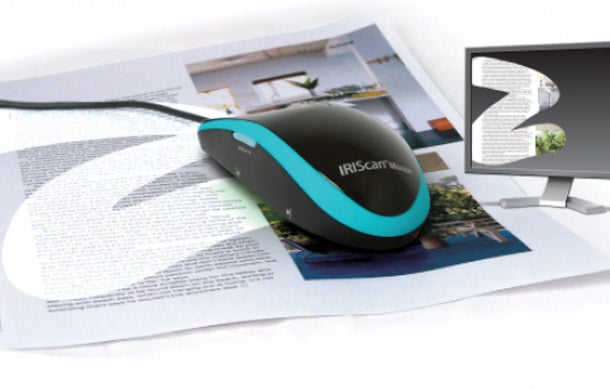
This mouse eats your clutter
Image credit: LifeEdited.com Blog
2. Think before you hit print. Think twice before faxing, too. Going paperless is the first step to an eco-friendly office. Easily digitize large important documents with Fuji’s sheet-fed
scanners, LG’s mouse scanners, or apps like ScannerPro. Then there are those little pieces of important paper. We stuff receipts in manila envelopes and stash business cards in desk drawers. Shoeboxed.com digitizes and categorizes all these bits into organized data.
3. Don’t design your office for 100-percent occupancy. LifeEdited finds that many businesses have unused office spaces because employees often travel or work from home. Consider a multi-functional boardroom. How often is it used? Could it be transformed into extra work desks for interns?
The U.S. Self-Storage Industry: The Price of Clutter
- $24 billion+ in revenues (2013 estimates)
- Fastest growing segment of commercial real estate industry
- Avg. asking rent for 10'x10' unit: $115 - $146/month
- 65% of storage renters have a garage; 47% have an attic; 33% have a basement
- 47% of storage renters have an annual household income of less than $50,000
4. Avoid LinkedIn overload. Such sites can expand professional networks, but it also leads to a packrat mentality leading to shallow business relationships. Be conscious about whether you are directing your networking efforts toward purposeful connections.
5. Mind the minutes. Make sure the meeting follows the agenda, and whether you should be holding that meeting in the first place. “Be choosey about who you spend time with,” says Hill. This works in business and in personal life.
6. Pulling the e-mail thread. There’s also a bad habit of over-CCing everyone on e-mails, which can kill productivity.
7. Stand up for yourself. Standing meetings may keep you more focused and more alert of time, which can easily drag by when you’re seated. Hill also suggests standing desks. “I use one and it’s space efficient. It’s a drawer that pulls out of a wall.” In fact, Hill says the key is tominimize horizontal surfaces altogether.
8. Picking up what you put down…on tabletops. It’s simple: “If you have tables, you’ll put stuff on it,” says Hill. “Focus on little to no shelving, so everything is stored in closets or cabinets. This allows you to keep it neat.” This works for offices and homes.



0 comments:
Post a Comment